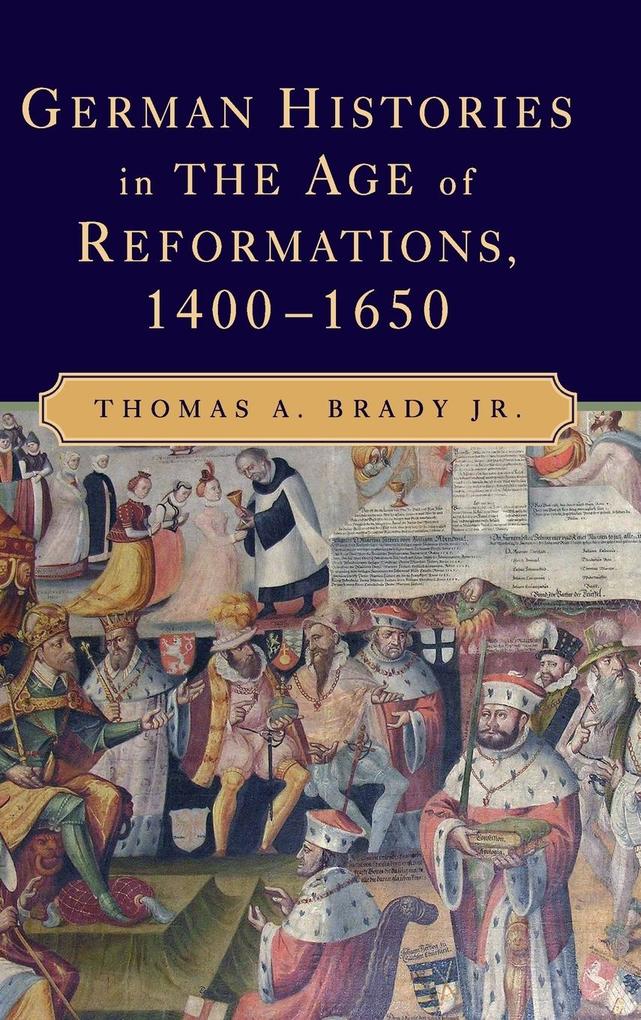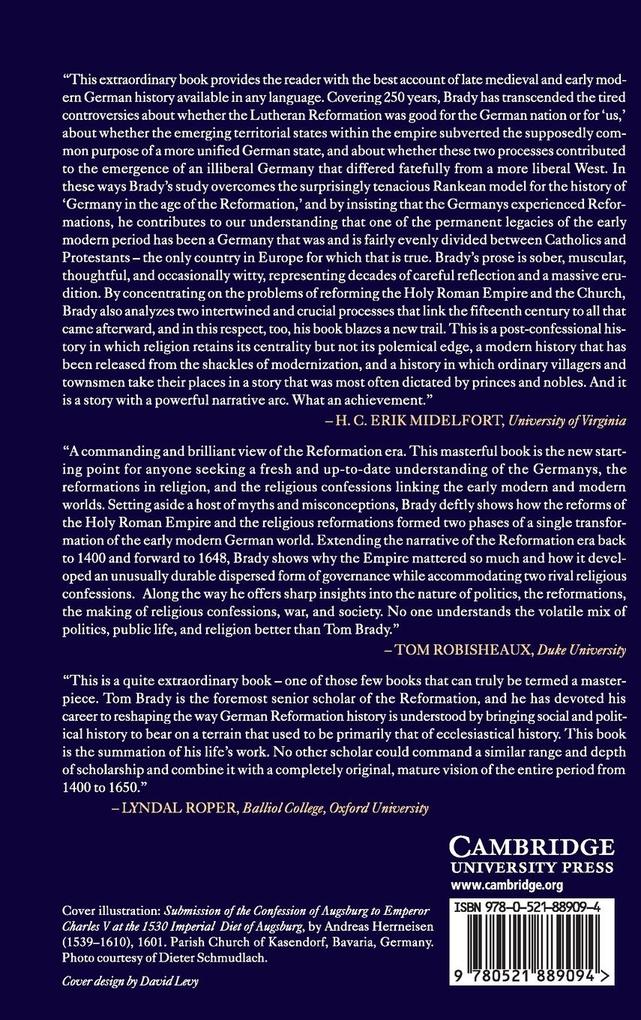
Zustellung: Do, 12.06. - Di, 17.06.
Versand in 2 Wochen
VersandkostenfreiBestellen & in Filiale abholen:
This book studies the connections between the political reform of the Holy Roman Empire and the German lands around 1500 and the sixteenth-century religious reformations.
Inhaltsverzeichnis
Part I. The Empire and the German Lands: 1. Reformations in German histories; 2. Shapes of the German lands; 3. Temporal estates - farmers, traders, fighters; 4. The church and the faith; Part II. Reform of Empire and Church, 1400-1520: 5. Reform of empire and church; 6. The empire and the territorial states; 7. The reform of the empire in the age of Maximilian; 8. Ideals and illusions of reforming the church; Part III. Church, Reformations, and Empire, 1520-76: 9. Urban reformations; 10. Revolution of the common man; 11. Imperial reformations in the age of Charles V; 12. Imperial peace, 1555-80; Part IV. Confessions, Empire, and War, 1576-1650: 13. Forming the Protestant confessions; 14. Reforming the Catholic church; 15. Limits of public life - Jews, heretics, witches; 16. Roads to war; 17. The Thirty Years War; 18. German reformations, German futures.
Produktdetails
Erscheinungsdatum
13. Juli 2009
Sprache
englisch
Seitenanzahl
496
Autor/Autorin
Thomas A Brady
Verlag/Hersteller
Produktart
gebunden
Gewicht
864 g
Größe (L/B/H)
235/157/31 mm
ISBN
9780521889094
Entdecken Sie mehr
Pressestimmen
'This extraordinary book provides the reader with the best account of late medieval and early modern German history available in any language ... This is a post-confessional history in which religion retains its centrality but not its polemical edge, a modern history that has been released from the shackles of modernization, and a history in which ordinary villagers and townsmen take their places in a story that was most often dictated by princes and nobles. And it is a story with a powerful narrative arc. What an achievement.' H. C. Erik Midelfort, University of Virginia 'A commanding and brilliant view of the Reformation era. This masterful book is the new starting point for anyone seeking a fresh and up-to-date understanding of the Germanies, the reformations in religion, and the religious confessions linking the early modern and modern worlds ... No one understands the volatile mix of politics, public life and religion better than Tom Brady.' Tom Robisheaux, Duke University 'This is a quite extraordinary manuscript; one of those few books which can truly be termed a masterpiece. Tom Brady is the foremost senior scholar of the Reformation, and he has devoted his career to reshaping the way German Reformation history is understood, by bringing social and political history to bear on a terrain that used to be primarily that of ecclesiastical history. This book is the summation of his life's work. No other scholar could command a similar range and depth of scholarship, and combine it with a completely original, mature vision of the entire period 1400 to 1650.' Lyndal Roper, Balliol College, Oxford University 'Brady's writing is gripping, his scholarship deeply erudite, and his arguments are strongly and persuasively presented ...There is no one better to have filled this need than Brady.' H-German '... like no other history of the Holy Roman Empire ... this book is interdisciplinary in the most judicious and fruitful ways. It is filled with riveting stories. Brady's analyses are often profound, yet his text includes basic information for the nonspecialist.' Susan C. Karant-Nunn, American Historical Review
Bewertungen
0 Bewertungen
Es wurden noch keine Bewertungen abgegeben. Schreiben Sie die erste Bewertung zu "German Histories in the Age of Reformations, 1400-1650" und helfen Sie damit anderen bei der Kaufentscheidung.











